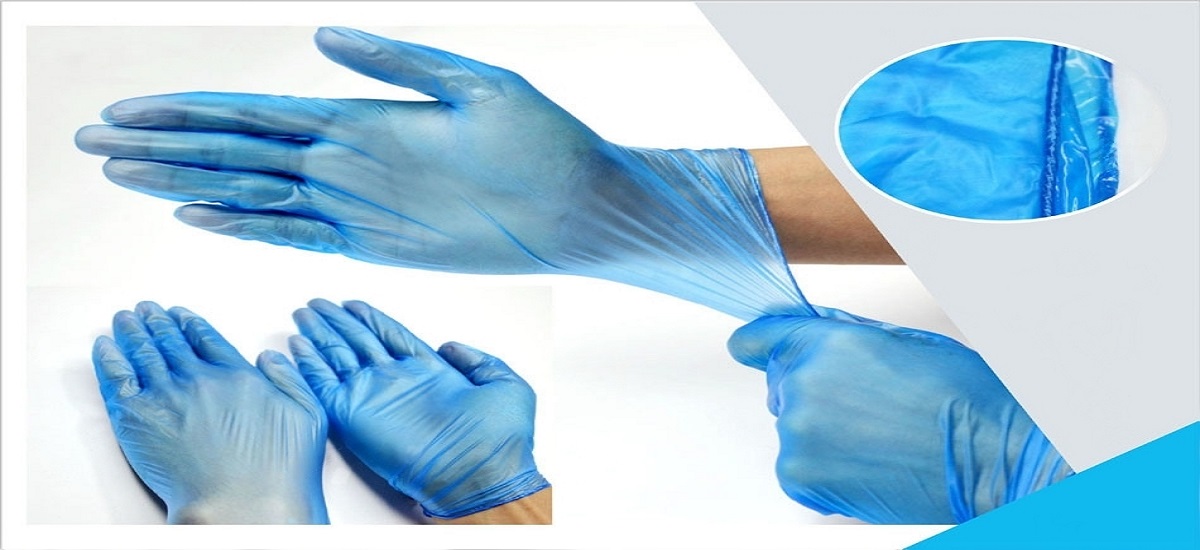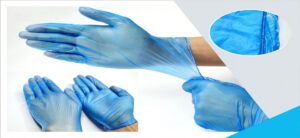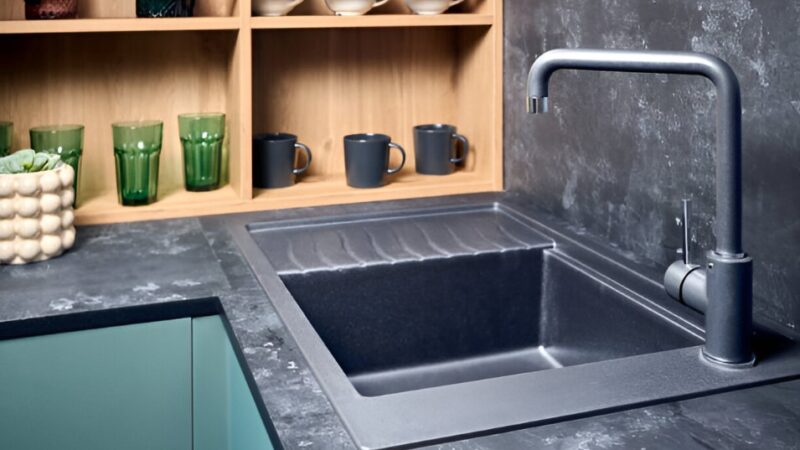Vinyl Gloves: What You Need To Know To Secure Your Workforce

Protecting the hands from chemicals, germs, and irritants is vital to workplaces. It is also important to protect them from other dangerous materials. Also, wearing gloves is critical to preventing disease, cross-contamination, and harm. Gloves protect items, materials, work surfaces, and more.
For decades, vinyl gloves have been a favored choice for many jobs and homes. This is due to their moderate cost and the many defensive benefits they offer.
Here, take a closer look into the properties, benefits, and uses of vinyl gloves. This will help you choose the best glove for your needs today. Let’s Read!
Disposable Vinyl Gloves
Vinyl gloves are a prevalent sort of disposable gloves, both for household and mechanical use. They are not reasonable. They are too reasonable for many uses.
Disposable vinyl gloves are especially prevalent in working environments where the normal wearing and evacuation of gloves is required, such as in nourishment taking care of parts, individual care, household work, hairdressing, dentistry, and more.
Made from PVC (polyvinyl chloride), vinyl gloves are treated with a plasticizer to make them more versatile. The result may be a waterproof glove. It is safe from mild chemicals and alcohol. It is also safe for biohazards, like pathogens in real liquids, cleansers, and more.
When selecting a disposable safety glove for work or home, you must consider the testing and industrial standards the gloves must meet. A few of the foremost common European measures to be sure are the following:
- EN1186, which regards the gloves as secure for contact with nourishment,
- EN455, the European restorative gloves measures, and
- EN374, the chemical and micro-organism entrance resistance standard.
Each of these guidelines offers help in determining the suitability of expendable security gloves and whether they are fit for reason in your specific application.
Be sure to consult to”>to refer to the manufacturer’s rules sometime recently obtaining any disposable safety glove, to guarantee that it meets your needs.
What Are Vinyl Gloves Utilized For?
Vinyl gloves have been found in nourishment handling and preparing parts, as they’re cheap and simple to wear and evacuate. However, their commonsense employments amplify distant past these sorts of parts.
They are less flexible than latex gloves and less strong than nitrile ones. But, they are still useful in many workplaces or homes.
Vinyl gloves provide a barrier against liquids. This helps with contamination control and reduces the risk of cross-contamination. They also protect against low-level chemicals, cleansers, and alcohol. Because of this, they can be used in:
Non-Fatty Nourishment Arrangement
Our vinyl gloves are certified to EN1186. They are safe for contact with food, even with greasy ones. They are a low-cost option for parts that need standard disposal of gloves. This includes customer-facing food service parts and crisis services.
Painting And Printing
Vinyl gloves are a fabulous choice for portraying and printing parts, where paints, colors, and other coloring operators are displayed. They not only give an effective barrier against paints and colors, but they’re also simple to supplant. This makes a difference to avoid cross-contamination and to ensure work surfaces, materials, and items from recoloring.
Cleaning And Care Work
Vinyl gloves are great for low-risk cleaning. They do not involve dangerous materials, like stronger chemicals. But, they do need to avoid contamination (from body liquids, for example).
Vinyl gloves are also a prevalent choice for domestic use. This includes cleaning in homes and other areas. Other jobs include dentistry, making parts, janitorial work, home care, hairdressing, local specialist work, and more.
Their use is getting to be more far-reaching, and, as hypersensitivities have become a concern for many clients. Accelerator and latex-free, they are an excellent low-allergen solution to latex or nitrile gloves, for a variety of applications.
How Are Vinyl Gloves Made?
Vinyl gloves are less vigorous, flexible, and form-fitting than other gloves. But, they offer critical benefits over choices like latex and nitrile gloves.
Vinyl gloves are some of the cheapest disposable safety gloves on the market. They are a popular choice for applications that need many gloves. They are used where there’s a low risk of exposure to dangerous materials like solid chemicals or microorganisms.
However, despite their ubiquity in certain businesses, there’s still often disarray encompassing the address ‘how are vinyl gloves made?’ and what makes them the most fitting solution in many workplaces.
Vinyl gloves in Canada are engineered gloves made employing a polymer fabric called polyvinyl chloride, or PVC. During the manufacturing process, a plasticizer is included in the PVC item to make the material more adaptable and reasonable for use in creating expendable safety gloves.
Vinyl gloves are free from both latex and the chemicals used in making nitrile gloves.
This makes them a great low-allergen option for many work environments. This is especially true for places where Sort I and Sort IV sensitization (including latex allergies), dermatitis, or delicate hands are a concern.
The materials used to make vinyl gloves are cheap. They are also less tough than options like latex or nitrile. Vinyl is worse at protecting hands from tearing, punctures, dangerous chemicals, and biohazards.
Because of this, vinyl gloves are seen as a ‘budget’ choice for disposable work gloves.
In any case, vinyl gloves are cheap and flexible. They work for many applications with low-level risks. They protect hands and wrists from real liquids, soaps, paints, and more.
Vinyl gloves are too safe for nourishment. This makes them a popular choice for handling and preparing food.
Sensitive Reaction To Vinyl Gloves
In workplaces that need security gloves, it is vital to be aware of possible skin reactions.
Sort I (latex sensitivity) Sort IV affectability (deferred affectability) and contact dermatitis are a few of the contemplations that must be made when selecting the fitting expandable security glove for working environments.
Latex and nitrile gloves both pose a sensitivity risk to wearers and those they touch. But, no one is known to have an allergic response to vinyl.
Vinyl gloves do not cause latex allergies. They are also free of chemical quickening agents. So, they are unlikely to cause the most common allergic reactions to gloves.
However, there’s still the risk of contact dermatitis from the dampness inside the glove (from sweat, for example). Also, there’s the risk of a reaction to the cornstarch used in powdered gloves.
Powder-Free Vinyl Gloves
Powder is for the most part included in gloves to assist with donning and evacuation, making them less likely to tear.
That said, powder can be risky in some workplaces. These are places where powder can harm surfaces or materials, or where powder becomes airborne and increases the chance of allergic reactions (most to latex). For this reason, powder-free gloves may be favored.
Final Thoughts:
Disposable vinyl gloves don’t give the same level of security as nitrile gloves. Be that as it may, both gloves give much more security as compared to other gloves. You can find vinyl gloves in Canada. They are FDA-standard nitrile and vinyl gloves for use in many settings.
If you’re trying to choose between vinyl or nitrile gloves, it may be hard to decide which type is best for you.
However, employees ought to not put their well-being, or their customers’ health, in the hands of moo quality gloves.
Read More interesting articles on Mirror Eternally







